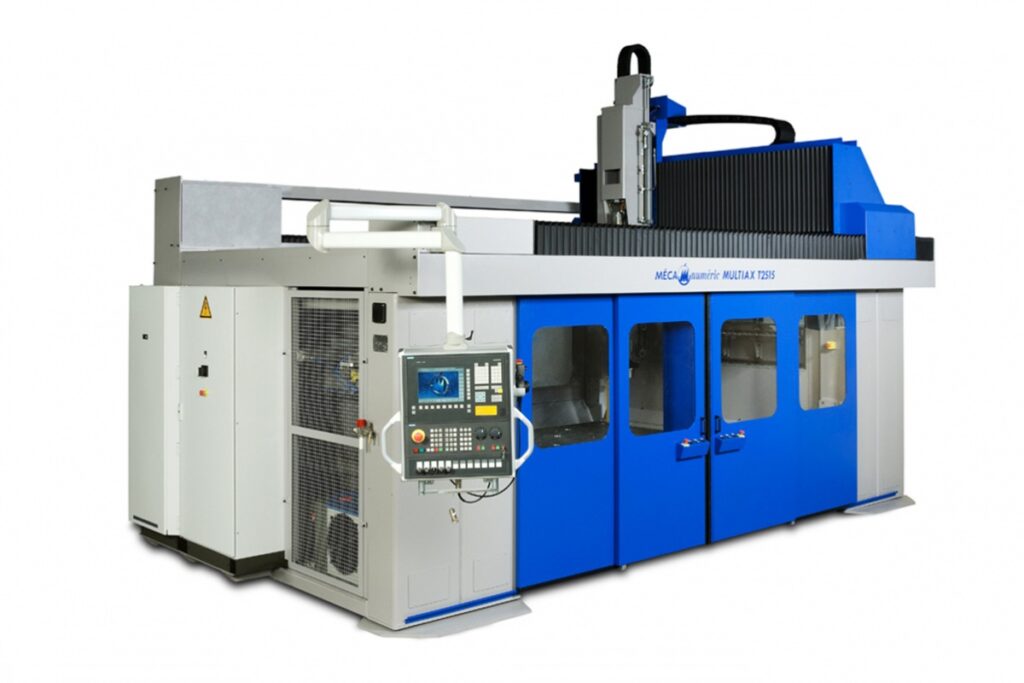Plastic materials are widely used in CNC machining for prototyping, functional components, and production parts—thanks to their lightweight properties, machinability, and cost-efficiency.
Among the most commonly machined plastics are ABS, PEEK, and Delrin (also known as acetal). Each of these thermoplastics has specific performance characteristics, making them suitable for different applications across industries like medical, automotive, electronics, and consumer products.
In this guide, you’ll learn the differences between these materials, how they behave during CNC machining, and when to choose one over the other.
Why Use Plastics in CNC Machining?
Plastics offer several unique advantages over metals in CNC machining applications:
-
Lightweight
-
Electrically insulating
-
Corrosion and chemical resistant
-
Easily machinable with lower cutting forces
-
Cost-effective for low-volume production and prototypes
-
Ideal for components that don’t require high structural loads
Plastics are particularly effective in industries where weight reduction, electrical insulation, and chemical resistance are crucial.
ABS: Cost-Effective and Versatile
What is ABS?
ABS (Acrylonitrile Butadiene Styrene) is a tough, impact-resistant thermoplastic commonly used in consumer and industrial products. It’s one of the easiest plastics to machine and finish.
Key Properties:
-
Good dimensional stability
-
High impact resistance
-
Good machinability
-
Moderate heat resistance (up to 80°C)
-
Low cost
CNC Machining Benefits:
-
Smooth surface finish with minimal tool wear
-
Excellent for general-purpose prototypes
-
Paintable and bondable
-
Supports tight tolerances (~±0.05 mm typical)
Common Applications:
-
Enclosures and housings
-
Mechanical brackets
-
Toys and consumer goods
-
Low-stress structural components
-
Prototype assemblies before injection molding
When to choose ABS:
Use ABS when you need a low-cost, general-purpose material for prototyping or light-duty parts. It’s ideal for testing form, fit, and assembly, especially when visual appearance matters.
PEEK: High-Performance for Critical Applications
What is PEEK?
PEEK (Polyether Ether Ketone) is a high-performance engineering thermoplastic known for its exceptional mechanical, thermal, and chemical properties. It is widely used in medical, aerospace, and electronics industries.
Key Properties:
-
High heat resistance (up to 250°C continuous)
-
Excellent chemical and wear resistance
-
High strength-to-weight ratio
-
Inherently flame retardant
-
Biocompatible and FDA compliant
CNC Machining Benefits:
-
Maintains tight tolerances (±0.01 mm or better)
-
Machinable on 3- and 5-axis mills and lathes
-
Resists warping during machining
-
Supports complex geometries for functional prototypes
Common Applications:
-
Spinal implants and surgical instruments
-
Aerospace brackets and insulation parts
-
Semiconductor wafer components
-
High-temperature pump and valve components
-
Medical device enclosures requiring sterilization
When to choose PEEK:
Choose PEEK when performance and durability are essential, especially in high-temperature or chemically harsh environments. It’s also ideal for FDA- and ISO-compliant medical and food-grade components.
Delrin (Acetal): Low-Friction and Dimensional Stability
What is Delrin?
Delrin is the brand name for acetal homopolymer, a highly crystalline engineering plastic with excellent stiffness, low friction, and good dimensional stability. It’s often used as a metal alternative for precision parts.
Key Properties:
-
High strength and stiffness
-
Low coefficient of friction
-
Excellent dimensional stability
-
Good fatigue resistance
-
Moderate temperature resistance (up to 90°C)
CNC Machining Benefits:
-
Cuts cleanly with minimal burring
-
Maintains tolerances under load
-
Highly machinable for complex shapes
-
Allows tight press fits and moving parts
Common Applications:
-
Gears, bearings, and bushings
-
Electrical insulators
-
Automotive pump components
-
Sliding or rotating mechanisms
-
High-precision moving assemblies
When to choose Delrin:
Use Delrin for wear-resistant, low-friction applications requiring smooth movement and dimensional accuracy. It’s excellent for mechanical components under repeated stress or motion.
Comparison Table: ABS vs. PEEK vs. Delrin
| Property | ABS | PEEK | Delrin (Acetal) |
|---|---|---|---|
| Heat Resistance | ~80°C | ~250°C | ~90°C |
| Machinability | Excellent | Good (requires sharp tooling) | Excellent |
| Strength | Moderate | Very High | High |
| Chemical Resistance | Moderate | Excellent | Good |
| Wear Resistance | Low | High | Very High |
| Friction Coefficient | Moderate | Low | Very Low |
| FDA Compliance | No | Yes | Yes |
| Common Use Case | Prototypes | Medical & aerospace parts | Mechanical, wear components |
| Cost per kg (est.) | $2–$4 | $60–$80 | $8–$15 |
Machining Tips for Each Material
Machining ABS:
-
Use high RPM and moderate feed rates
-
Watch for melting or gumming—use air cooling
-
Deburr gently to prevent edge cracking
-
Avoid over-tightening clamps (soft material)
Machining PEEK:
-
Use sharp carbide tools
-
Maintain low to moderate feed to prevent delamination
-
Use flood cooling to prevent thermal expansion
-
Ream holes instead of drilling for accuracy
Machining Delrin:
-
Use high feed rates with sharp tools
-
Watch for chip buildup in slots and pockets
-
Use proper fixturing—it’s slippery!
-
Avoid overheating during long cuts
If precision turning is required for cylindrical parts made from any of these plastics, consider CNC turning services to achieve superior roundness and finish.
Choosing the Right Plastic for Your CNC Project
When selecting a plastic for CNC machining, ask the following:
-
Will the part be exposed to high heat or chemicals? → Go with PEEK
-
Is it a prototype or low-stress visual model? → Choose ABS
-
Will it undergo wear, movement, or stress? → Opt for Delrin
Each material has trade-offs, and the right choice depends on your application’s performance, regulatory, and budget requirements.
Final Thoughts
ABS, PEEK, and Delrin represent three very different classes of plastics used in CNC machining—each excelling in its own area.
-
ABS is affordable and ideal for quick, cosmetic prototypes.
-
PEEK is unmatched for high-performance, mission-critical components.
-
Delrin is perfect for precision mechanical parts with low friction and high dimensional stability.
Understanding their properties helps engineers, product designers, and manufacturers make better decisions during material selection. With the right CNC setup and machining strategy, all three can deliver high-quality, repeatable results.

